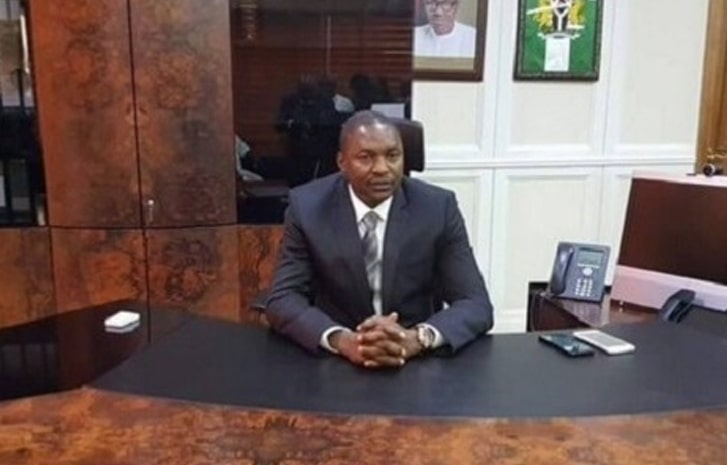There are no products in your shopping cart.
| 0 Items | £0.00 |


PLANS are being finalised to scrap the Economic and Financial Crimes Commission (EFCC) and replace it with an agency under the Federal Ministry of Justice that will report to the attorney-general of the federation.
Already, a draft bill is being worked upon, which will be presented to the National Assembly when completed. However, Professor Itse Sagay the chairman of the Presidential Advisory Committee Against Corruption (Pacac), has opposed the plan, saying, the development amounted to the mother of corruption fighting back.
Supporters of this bill titled An Act to Repeal the Economic and Financial Crimes Commission (Establishment) Act, 2004, claim it will make the EFCC more efficient. In several sections, the bill seeks to give the attorney-general so much power over the proposed new anti-corruption agency and reduce it to a paper department under the Federal Ministry of Justice.
For instance, the draft bill proposes a repeal of the EFCC Establishment Act 2004. It also proposes the replacement of the EFCC executive chairman with a director-general, to be appointed by the president, based on the recommendation of the attorney-general, subject to confirmation by the Senate.
Also, the proposed law restates the power of the attorney-general to discontinue the prosecution of criminal cases as guaranteed in Section 174 of the 1999 constitution and empowers him to cancel the prosecutorial power of the EFCC when he sees fit. Section 45 of the new bill states that the attorney-general may, after notifying the EFCC, intervene in court proceedings, at first instance or on appeal.
Also, the secretary of the EFCC, which is a creation of Section Eight of the existing EFCC Act, is not mentioned in the new bill, indicating that the position has been scrapped. Other proposals are the replacement of the EFCC board with directors to be appointed by the attorney-general.
According to Professor Sagay, Section 11 of the proposed bill provides that nobody may be appointed or seconded to the new agency unless he is screened and approved by the Department of State Services. Under the bill, the EFCC’s annual report is not to be submitted to the National Assembly until it has been passed through the attorney-general's office thus making him the reporting officer of the agency rather than the chairman or the director-general.
Under its suspended acting chairman Ibrahim Magu, the EFCC had a strained relationship with attorney-general Abubakar Malami, who accused Mr Magu of insubordination and re-looting of recovered funds. He also complained that Mr Magu often failed to forward case files bordering on corruption to the attorney-general's office, proceeding to court directly, which Mr Malami felt was, among others, unprocedural.
However, this proposed bill is being opposed by anti-corruption bodies. Already, a coalition of about 150 civil societies on August 3, in a petition to President Muhammadu Buhari, also listed about 14 cases bordering on corruption said to have been stalled by Mr Malami's office, which they said threatened the prospect of future of anti-corruption campaigns.
The coalition also alleged that, that on November 18, 2018, Mr Malami, through a lawyer from his office, identified as Pius Akuta, came to Lagos High Court to withdraw a case of fraud filed by the EFCC against one Dr John Abebe, a businessman and younger brother to the late Stella Obasanjo. However, the EFCC resisted the illegal move before Justice Mojisola Dada of Ikeja High Court on the grounds that the attorney-general had no constitutional power to take over a case filed in a Lagos High Court.
Other allegations listed included the withdrawal of the case against the chairman of the Code of Conduct Tribunal Danladi Yakubu, for criminal charges. Mr Malami is also said to have demanded the withdrawal of the cases against Bello Adoke, Diezani Alison-Madueke and others involved in the Malabu scandal and has halted the investigation of fraud in the Nigeria Incentive-Based Risk Sharing System for Agricultural Lending.